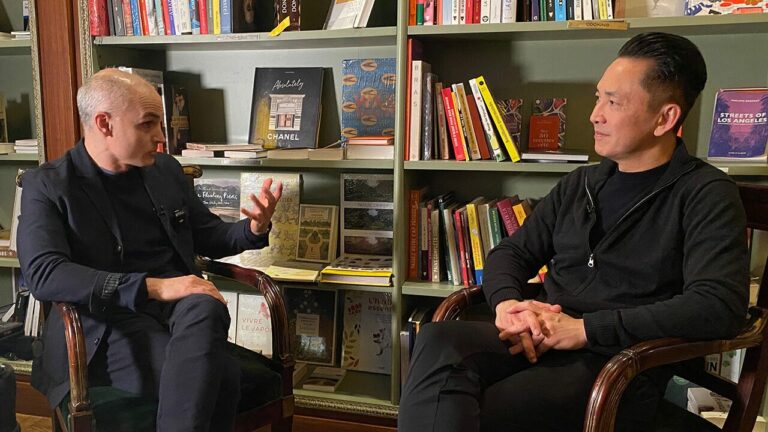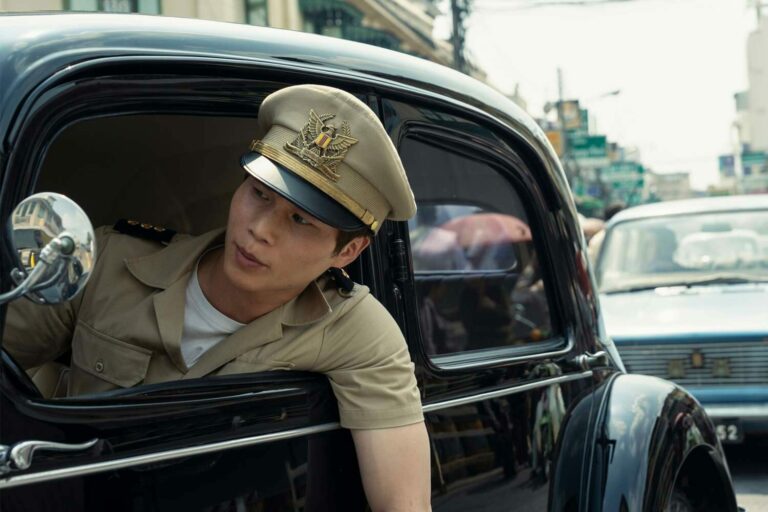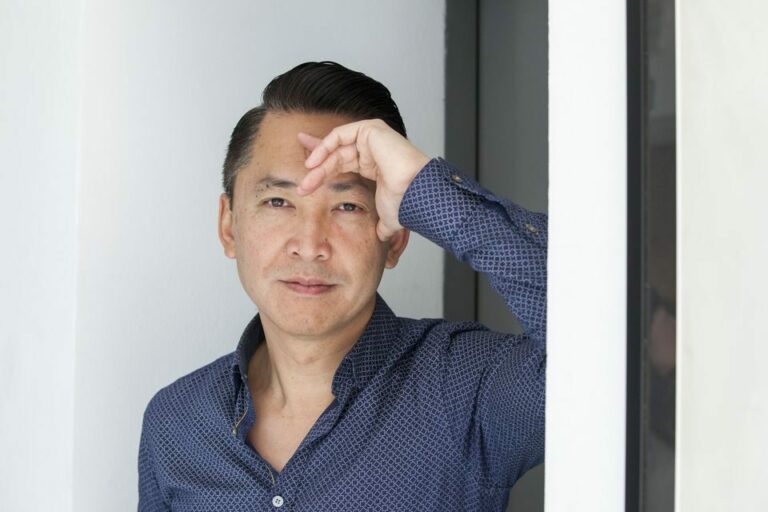This is Part 2 of Peter Larsen’s interview with Viet Thanh Nguyen for the Orange County Register. You can read Part 1 here.

Even as a refugee child some 40 years ago, Viet Thanh Nguyen remembers loving the books he found everywhere in his first American hometown of Harrisburg, Pennsylvania.
“Some of my earliest memories were of going to the public library and to the book mobile and bringing books home,” says Nguyen, who won the 2015 Pulitzer Prize in literature for his debut novel, “The Sympathizer,” and who will take part a Register Book Club program on Tuesday.
“And somehow learning to read in English – it was certainly not something my parents taught me, I must have learned it in public school in some fashion,” he says. “But I learned it very quickly and I grew up immersed in the public library as my home away from home.”
In a story earlier this week we talked with Nguyen about the inspiration behind “The Sympathizer” and “The Refugees,” the just-published follow-up. That piece didn’t explore how Nguyen, 45, first fell in love with the idea of writing, and later figured out how to make that his career alongside his work as a professor of English and American studies and ethnicity at the University of Southern California.
To hear Nguyen tell it, as soon as he could read he also wanted to tell his own stories.
“Even from a very early age I had some inspiration to tell stories,” he says. “As I remember, in probably the second grade in San Jose, writing a little book and getting a prize for it from the public library.
“It was probably the earliest seed of thinking, ‘Oh, this is fun.’ And the impulse just grew gradually over the years.”
It was not, however, a goal that his Vietnamese immigrant parents really understood, and so, Nguyen says, he kept quiet about his dream for many years.
“I don’t think I ever came home and said, ‘I’m writing a story,’ or, ‘I’m writing a play,’ as I did, for instance, in high school,” he says. “Those were things I did on my own time, and being a writer was something private to me, it wasn’t something that I spoke about to anyone, really.
“I thought being called a writer, that’s something that other people bestow on you,” Nguyen says. “People who call themselves writers, who are just kids or just writing in their journals or notebooks, I thought that was pretentious. so I thought it was something I had to do in secret until I was ready to be publicly acknowledged.”
In college, which he finished at the University of California, Berkeley, Nguyen says he told his parents he was majoring in English, holding off their dream that he become a doctor or lawyer by telling that he planned to go to law school after he graduated.
“That was probably a half-truth,” he says. “I thought, ‘Well, if I’ve got nothing else to do I’ll go to law school,’ but I was also trying to fend off my parents for four years in order to get to do what I wanted to do. And that seemed to work because at the end of the four years I went on to get my doctorate in English, which they were puzzled by, I think, but they were relatively liberal and let me do that.
“Sometimes I think one of the reasons they let me do that was because at least there was a doctorate involved,” he says.
While it seems like Nguyen has unleashed a flood of work in the last three years – “The Sympathizer” and “The Refugees” are separated by 2016’s non-fiction book “Nothing Ever Dies: Vietnam and the Memory of War,” which was a finalist for the National Book Award last year – he says that in truth the books were in development for years before they arrived.
“”By the time I started to write ‘The Sympathizer’ I’d been thinking of many of the events in that book literally for decades,” Nguyen says. “And so that book actually, despite the fact that it’s probably the most complex book in terms of how it’s written, only took me two years to write, and that began in 2011, so it’s a relatively recent book.
“The other books began much earlier,” he says. “The first words of ‘The Refugees’ were put down in 1997 and the last words were not put down until 2014. And ‘Nothing Ever Dies,’ the research for that started in 2002 and I didn’t write the final draft until 2014.
“Those books were just much more difficult for me to write than ‘The Sympathizer,’ probably because I started them much earlier and they laid the groundwork. By the time I got to ‘The Sympathizer’ I’d worked through so many issues that it was easier to write that book.”
The success he’s experienced in recent years has been gratifying for Nguyen, and indirectly his parents, too.
“I’ve given them the books and the books are dedicated to them, but I don’t think they’ve read them because the books are English, and they read English for business but not for literature,” he says. “But they are certainly aware of the impact on the public, especially the Vietnamese public, which is very important to them.
“I’ve given them articles about me, interviews with me, in Vietnamese and they take tremendous pride in that.”
Then he tells a story about winning the Pulitzer and his parents that’s one of the best anecdotes in the entire interview.
“When my novel won the Pulitzer I didn’t tell them,” says Nguyen, who is currently working on a sequel to “The Sympathizer.” “I think I was on the road when it happened and we’re a modest family, we don’t go around bragging about our accomplishments.
“It was our relatives in Vietnam calling them, saying, ‘Hey, he won the Pulitzer Prize!’ that alerted them to the news,” Nguyen says. “And they were very, very happy, because if the relatives in Vietnam heard about it, it must be a big deal.”


